Household chores can often feel overwhelming, leaving many feeling trapped in a cycle of constant cleaning. Whether you’re juggling a busy schedule or simply seeking a more efficient approach, mastering effective household cleaning strategies can transform your daily routine. In this comprehensive guide, we’ll explore proven techniques to streamline your cleaning process, helping you reclaim your time and maintain a pristine home environment. From understanding the basics of household cleaning to implementing time-saving methods, this article offers actionable insights to elevate your household care routine. Discover how to adopt the Clean Mama Routine, leverage expert tips from Lynsey Crombie, and learn the secrets to keeping your home spotless with minimal effort. Whatever your current cleaning challenges may be, this guide has the solutions you need to achieve a cleaner, more organized space.
Key Takeaways
- Average Cleaning Time: Most people spend 6-8 hours per week on household cleaning.
- House Size Impact: Small houses (1-2 bedrooms) require about 4-5 hours, while larger houses (3-4 bedrooms) may need 8-10 hours.
- Resident Impact: Singles typically need 5-6 hours, while families with kids or pets may require 6-8 hours due to higher mess levels.
- Daily Tasks Breakdown:
- Cooking and dishes: 2-3 hours daily (6-9 hours weekly)
- Laundry: 2-3 hours weekly
- Vacuuming/mopping: 1-2 hours weekly
- Bathroom cleaning: Once weekly, more if used multiple times
- Dusting/decluttering: 1-2 hours weekly
- Efficiency Tips: Use the “one room” cleaning method, plan ahead, invest in quality tools, and consider hiring professionals for specialized tasks.
This structured approach ensures effective time management and a cleaner living environment.

What is the 30 Minute Cleaning Rule?
The 30-minute cleaning rule is a highly effective time management strategy designed to make household cleaning less overwhelming and more achievable. This rule divides cleaning tasks into manageable 30-minute intervals, allowing you to tackle specific areas of your home without feeling overwhelmed.
How the 30-Minute Cleaning Rule Works
- 30-Minute Sessions: Break your cleaning tasks into focused 30-minute blocks. This ensures you dedicate concentrated effort without getting distracted by smaller tasks.
- Rotate Tasks: Assign specific cleaning activities to each session. For example, one day could focus on bathrooms, another on kitchens, and another on living areas.
- Stay Focused: During each 30-minute window, focus solely on the assigned task. This helps maintain productivity and prevents task-switching.
Benefits of the 30-Minute Cleaning Rule
- Reduces Overwhelm: Dividing tasks into smaller segments makes cleaning feel more manageable and less daunting.
- Boosts Productivity: Knowing you’ll spend only 30 minutes on a task encourages you to work efficiently without wasting time on less important activities.
- Increases Accomplishments: Completing one or two focused tasks in 30 minutes gives a strong sense of accomplishment, which can boost motivation.
How to Implement the 30-Minute Cleaning Rule
- Create a Schedule: Choose a day of the week for each type of cleaning session. For instance, Mondays could be bathroom cleaning day, Tuesdays for the kitchen, and so on.
- Set a Timer: Use a timer to track your 30-minute sessions. This helps stay on target and resist the urge to multitask or rush through tasks.
- Stick to the Routine: Consistency is key. Regular cleaning sessions help maintain a clean and orderly home, making future sessions easier and quicker.
Why the 30-Minute Cleaning Rule Works
- Focused Effort: Concentrated 30-minute blocks allow you to complete tasks thoroughly without rushing.
- Progress Feels Achievable: Completing a task in 30 minutes builds momentum and makes larger cleaning projects seem more manageable.
- Reduces Stress: Knowing exactly what to do and how long it will take eliminates the anxiety often associated with cleaning.
Customizing the 30-Minute Cleaning Rule
- Adjust Time Slots: If 30 minutes feels too short or too long, adjust the timing to better suit your lifestyle. Some people prefer 15-minute sessions, while others may find 45 minutes more comfortable.
- Rotate Tasks: Feel free to mix and match tasks depending on your energy levels and priorities. For example, save deep cleaning for days when you have more time.
- Include Breaks: Take short breaks between sessions if needed. A quick stretch or a glass of water can refresh your mind and body.
By implementing the 30-minute cleaning rule, you can transform your approach to household maintenance, making it more efficient and enjoyable. This method empowers you to take control of your space while minimizing stress and maximizing productivity.
The 20-Minute Cleaning Rule Explained
The 20/10 rule is a productivity technique designed to make cleaning more efficient and less overwhelming. Here’s how it works:
- 20-Minute Work Sessions: Divide your cleaning task into focused 20-minute intervals. During these periods, minimize distractions and concentrate on completing specific sections of your task.
- 10-Minute Breaks: After each 20-minute session, take a 10-minute break. Use this time to relax, hydrate, or stretch to recharge your energy.
- Progress Tracking: Celebrate small victories after each 20-minute block. This positive reinforcement can motivate you to continue and tackle larger tasks more efficiently.
This method works best for quick cleaning tasks like:
- Vacuuming a small area
- Making your bed
- Washing dishes
- Organizing a drawer
By focusing on short, intense work periods, you can complete tasks faster and reduce the likelihood of procrastination. Over time, this approach can help you build a more efficient and consistent cleaning routine.
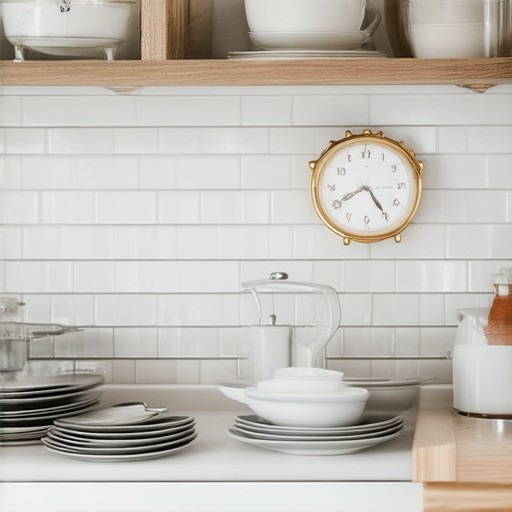
Correct Order to Clean a House
To ensure a thorough cleaning of your house, follow this organized approach:
- Start with the Overall Approach
- Begin by gathering all necessary cleaning supplies and tools.
- Remove all personal belongings from each room to facilitate cleaning.
- Open windows and doors to allow fresh air to circulate during the cleaning process.
- Top Floor:
- Wash and polish all mirrors, glasses, and windowpanes.
- Wipe down all wall surfaces, including switches and outlets.
- Vacuum all floors and dusty areas, such as ceiling fans and air vents.
- Mop and sweep the floors thoroughly.
- Second Floor:
- Clean all bedrooms, including beds, nightstands, and dressers.
- Vacuum and mop tiled or hardwood floors.
- Wash all bathroom fixtures, including showers and tubs.
- Sanitize all surfaces in the bathroom, including tiles and grout.
- First Floor:
- Begin with the kitchen, wiping down countertops, sinks, and appliances.
- Scrape any food particles from the microwave and wipe it down.
- Empty and clean the trash cans.
- Mop and sweep the kitchen floor.
- Move to the living areas, including the living room and family room.
- Fluff and vacuum all furniture and rugs.
- Dust all shelves and entertainment centers.
- Basement or Lower Levels:
- Check for moisture or mold and address any issues immediately.
- Mop and sweep the floors, especially if they are prone to dust or pet hair.
- Organize and store items neatly.
- Inspect for any leaks or water damage.
- Wash the exterior siding and trim.
- Clear gutters and downspouts, removing any debris.
- Inspect the roof for any loose debris or missing shingles.
- Power wash walkways and outdoor furniture if necessary.
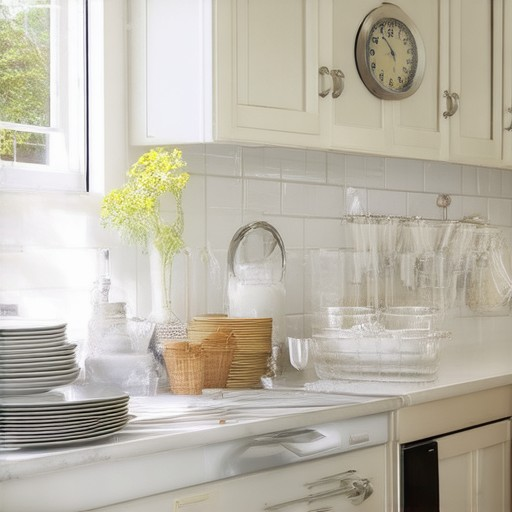
How Many Hours Per Week to Clean a House?
The average time spent cleaning a house per week varies based on several factors:
- House Size: Small houses may require approximately 4-5 hours, while larger homes, such as those with 4 bedrooms, may need around 8-10 hours.
- Number of Residents: Single individuals might manage with 5-6 hours, while families, especially those with children or pets, may require 6-8 hours due to increased messes.
- Daily Tasks:
- Cooking and dishes: 2-3 hours daily, totaling 6-9 hours weekly.
- Laundry: Approximately 2-3 hours, depending on load size.
- Vacuuming and mopping: Around 1-2 hours weekly.
- Bathroom cleaning, including showers: Once per week, though more frequent if multiple baths are used.
- Dusting and decluttering: About 1-2 hours weekly.
On average, most people dedicate around 6-8 hours per week to household cleaning. Effective time management, such as scheduling and prioritizing tasks, can help maintain a balanced routine. Consider hiring professional cleaners or utilizing cleaning tools and services to streamline the process.
The One Room Cleaning Rule Explained
The “one room” cleaning rule is a simple yet effective strategy that focuses on completing all cleaning tasks in one specific room before moving on to another. This method is often recommended by professionals and is designed to enhance efficiency and reduce overwhelm.
- Focus on One Space: Dedicate your time and energy to a single room, ensuring it is thoroughly cleaned and organized before addressing other areas.
- Compartmentalization:** By isolating tasks to a single room, you minimize distractions and complete projects more effectively, preventing partial efforts.
- Motivation and Momentum:** Completing one room can boost morale, making subsequent tasks seem more manageable and less daunting.
- Time Management:** This approach allows you to track progress and see tangible results, helping you stay on target and avoid time-wasting distractions.
Start with the room that feels most chaotic or stressful, as completing it may provide a satisfying sense of accomplishment, encouraging you to tackle other areas with renewed enthusiasm. This method aligns with productivity principles, such as the Pomodoro Technique, promoting focused work intervals and efficient task completion.
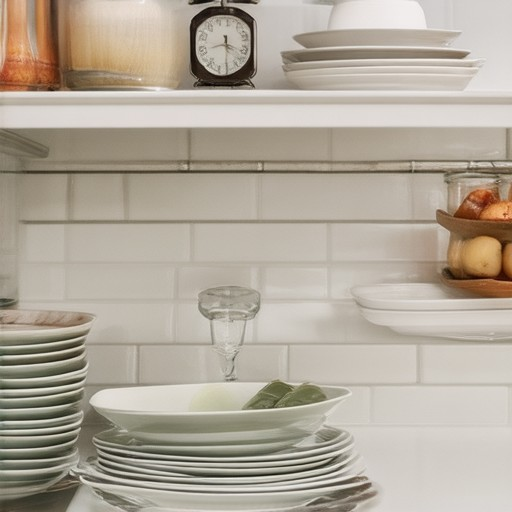
How Long Does It Take to Clean a 3-Bedroom House?
Cleaning a 3-bedroom house can vary significantly based on several factors. Generally, deep cleaning a 3-bedroom house takes between 4 to 8 hours . Here’s a breakdown of what influences the time:
Factors Influencing Cleaning Time
- House Condition :
- A well-maintained house may take around 4-6 hours .
- A neglected house with significant dirt, clutter, or stains could take closer to 8 hours .
- Number of People :
- One person cleaning may take 6-8 hours .
- With a team of 2-3 people working together, it can be completed in 4-6 hours .
- Additional Services Needed :
- Tasks like carpet cleaning, window washing, or organizing can add 2-4 hours to the total time.
- Surface Types :
- Hard surfaces (tile, wood) are easier to clean than carpets or upholstery, which may require more time and effort.
Scenarios
- Move-In Ready House : 4-6 hours for a basic cleaning.
- Neglected Home : Expect closer to 8 hours to restore order and cleanliness.
Tips to Save Time
- Plan Ahead : Identify areas needing attention before starting.
- Use Effective Tools : Invest in high-quality cleaning tools and products to reduce time spent on tough stains.
- Delegate : Consider hiring professionals for specialized tasks like carpet cleaning or window washing.
For optimal efficiency, professional cleaning services are often recommended for 3-bedroom homes due to their ability to handle deep cleaning effectively and efficiently.

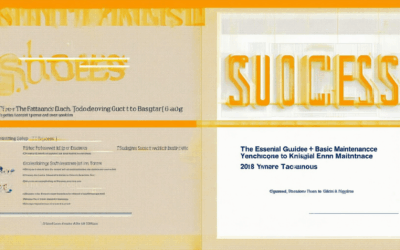
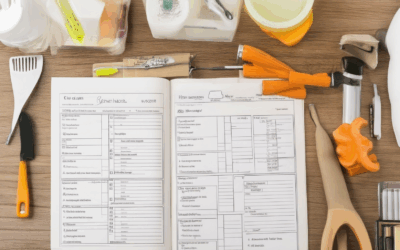

0 Comments